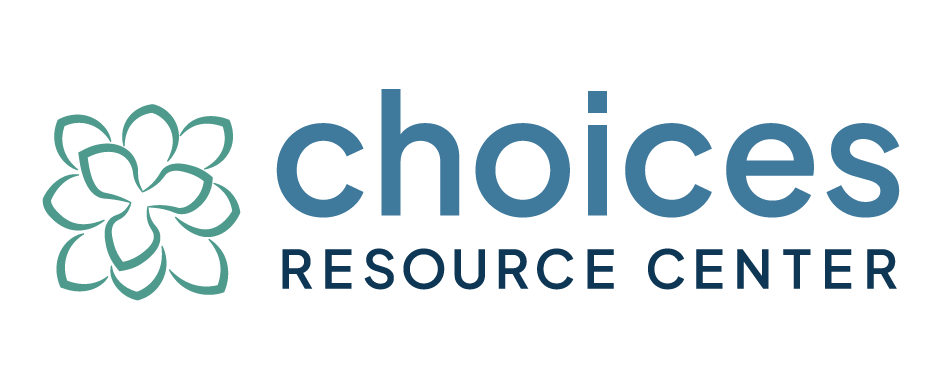An unplanned pregnancy can rip the rug out from under you. It can be easy to make a snap decision out of fear, but it’s crucial to ask questions and get all the facts on your options to protect your health!
Today, we’re answering some frequently asked questions about the abortion pill, so you can make a confident, educated decision regarding your unplanned pregnancy!
How Does the Abortion Pill Work?
Although it’s referred to as a pill (singular), the abortion pill actually consists of two medications: mifepristone and misoprostol.
Mifepristone is taken first, usually in a clinic. This medication cuts the supply of the hormone progesterone to the embryo, which is needed to maintain the pregnancy. Without a steady supply of progesterone, the embryo stops growing. Misoprostol is taken 24-48 hours later at home. This medication causes the uterus to contract and expel the fetus, which ends the pregnancy.
How Late Can You Take the Abortion Pill?
You can’t take the abortion pill beyond 10 weeks of pregnancy (or 70 days since the first day of your last menstrual period)[1]. This is because it becomes less effective the farther along you are. If you take the abortion pill later on in your pregnancy, you could experience serious complications and may need emergency surgery to complete the procedure.
Is Abortion Legal in Tennessee? Do I Need an Ultrasound Before Taking the Abortion Pill?
At the time of writing (June 2023), abortion is illegal at any point in pregnancy in Tennessee.
Consider receiving a free ultrasound at Choices Resource Center! If your ultrasound determines that your pregnancy isn’t viable, abortion won’t be needed, and you can move forward with the appropriate medical care. If it is viable, one of our compassionate, licensed nurses will help you explore all of your pregnancy options, so you can make the best choice for your health and future!
Do I Need a Prescription for the Abortion Pill? Can I Get the Abortion Pill Over the Counter?
The abortion pill is not available in Tennessee pharmacies. However, the FDA allows certain pharmacies out of state to dispense the abortion pill. However, you can’t purchase it in the same way you would Tylenol or allergy relief medication. You still need a prescription in order to take the abortion pill[4].
Can I Order the Abortion Pill Online?
The abortion pill is illegal in Tennessee. Additionally, the FDA warns against trying to order the abortion pill online, as it bypasses safety regulations designed to keep you safe. Many online abortion pill providers are located overseas, so the pills they provide may not be FDA-approved[4]. These pills could be fake, expired, or even laced with harmful substances! It’s best to speak to a licensed medical professional first!
What are the Side Effects of the Abortion Pill?
Like any medical procedure, there are risks and side effects associated with the abortion pill. Common side effects include:
- Spotting or bleeding that can last up to a month[5]
- Headaches
- Abdominal cramping (caused by the misoprostol)
- Nausea and vomiting
- Diarrhea and digestive pain
- Chills
- Fever
More severe abortion pill side effects include:
- Allergic reaction. Although rare, it is possible to go into anaphylactic shock after taking vaginal misoprostol if you’re allergic to any ingredients in the medication[6].
- Hemorrhaging. It’s normal to bleed for a while after taking the abortion pill. However, if you soak through two thick full-size sanitary pads per hour, for two or more hours, you could be hemorrhaging[7].
- Incomplete abortion. Incomplete abortions occur when some pregnancy tissue remains in the uterus after misoprostol has been taken. Emergency surgery may be needed to remove the remaining tissue and prevent infection[8].
- Infection. If you experience nausea, vomiting, diarrhea, or a fever for more than 24 hours after taking the second medication, an infection may have developed. You may need antibiotics or even surgery to treat your condition[9].
- Pelvic Inflammatory Disease (PID). Pelvic inflammatory disease is an infection of the female reproductive organs. The symptoms to be aware of include abdominal pain, irregular periods, nausea and vomiting, painful urination, painful sex, and unusual vaginal discharge[10].
This all may sound a bit frightening, but we believe you deserve to be aware of the risks and side effects of abortion, so you can make the best choice for your health and future!
Abortion Pill Information in Oak Ridge, TN
When your pregnancy test comes back positive, it can be easy to panic. Don’t let fear make any decisions for you! Get the care and support you deserve at Choices Resource Center! We offer free pregnancy resources, so you can make an empowered decision for your unplanned pregnancy:
- Free pregnancy tests
- Free ultrasounds
- A safe, non-judgmental place to explore your pregnancy options and sort through your emotions
Give us a call at (865) 483-0099 or schedule your appointment online today. All services are confidential and free of charge.
Please be aware that Choices Resource Center does not provide or refer for abortion services.
Sources
- FDA. (2021, December 6). Questions and Answers on Mifeprex. U.S. Food and Drug Administration. Retrieved from https://www.fda.gov/drugs/postmarket-drug-safety-information-patients-and-providers/questions-and-answers-mifeprex
- TN.gov. (2022, June 28). Tennessee’s Heartbeat Law Now in Effect: Attorney General Slatery Responds to Sixth Circuit’s Ruling. Jonathan Skrmetti Attorney General & Reporter. https://www.tn.gov/attorneygeneral/news/2022/6/28/pr22-21.html
- Mayo Foundation for Medical Education and Research. (2022, September 3). Slide Show: Fetal Ultrasound. Mayo Clinic. Retrieved from https://www.mayoclinic.org/healthy-lifestyle/pregnancy-week-by-week/multimedia/fetal-ultrasound/sls-20076294?s=3#
- Center for Drug Evaluation and Research. (2023, January 24). Mifeprex (Mifepristone). U.S. Food and Drug Administration. Retrieved from https://www.fda.gov/drugs/postmarket-drug-safety-information-patients-and-providers/mifeprex-mifepristone-information
- U.S. National Library of Medicine. (2016, May 16). Mifepristone (Mifeprex). MedlinePlus. Retrieved from https://medlineplus.gov/druginfo/meds/a600042.html
- Shin, Hyun Joo, et al. “Anaphylactic Shock to Vaginal Misoprostol: A Rare Adverse Reaction to a Frequently Used Drug.” PubMed Central (PMC), 9 Aug. 2018, www.ncbi.nlm.nih.gov/pmc/articles/PMC6137020
- FDA. (2016). Prescribing Information for Mifeprex. U.S. Food & Drug Administration. Retrieved from https://www.accessdata.fda.gov/drugsatfda_docs/label/2019/022348s014lbl.pdf
- Mayo Foundation for Medical Education and Research. (2022, July 29). Medical Abortion. Mayo Clinic. Retrieved from https://www.mayoclinic.org/tests-procedures/medical-abortion/about/pac-20394687
- Abortion Risks. Louisiana Department of Health. (n.d.). Retrieved from https://ldh.la.gov/page/1063
- Pelvic Inflammatory Disease (PID): Symptoms, Treatments & Causes. Cleveland Clinic. (2020, November 23). Retrieved from https://my.clevelandclinic.org/health/diseases/9129-pelvic-inflammatory-disease-pid

